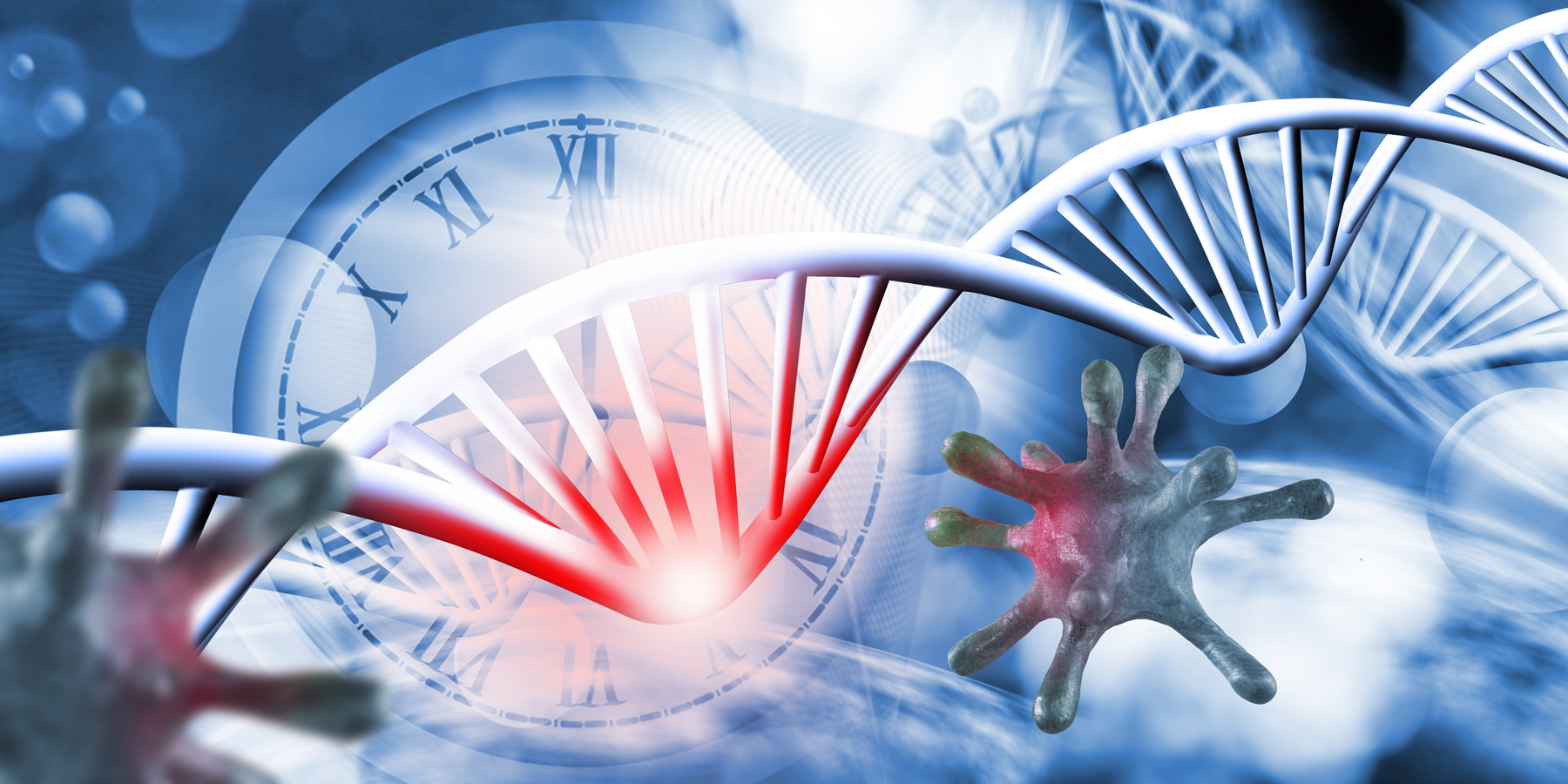How the Gut-Brain Axis and Hormones Influence Addiction
In today’s modern world, addiction has evolved beyond just substance abuse—it encompasses behaviors like overeating, excessive gaming, and even overindulgence in social media. At the core of many of these addictions lies a powerful yet intricate connection between the gut, brain, and hormones. This blog draws inspiration from Dr. Nicole Lovat’s recent Access Live Webinar, A Hormonal Guide to Curbing Addiction, where she shares her extensive expertise on the relationship between hormones and their role in addressing addiction – it explores how the gut-brain-opiate pathways tie various forms of addiction together and how hormones play a key role in regulating these behaviors.
 Dr. Nicole Lovat is a physician with a remarkable career who has been at the forefront of understanding the intricate relationship between hormones and health. With an MD and PhD in Pharmacology and Therapeutics, specializing in insulin resistance, metabolic syndrome, and pregnancy, Dr. Lovat brings a wealth of knowledge to her practice. Having treated patients in diverse settings, from ICU care to rural family medicine, her expertise has grown to include not just physical health but also the deep connections between mental health, addiction, and hormonal imbalances. She currently works at Firefly Medical Group PLLC, a family business that she and her husband opened after settling in Grand Forks, ND. The clinic offers customized medical care focused on treating symptoms of hormone deficiency in the Midwest.
Dr. Nicole Lovat is a physician with a remarkable career who has been at the forefront of understanding the intricate relationship between hormones and health. With an MD and PhD in Pharmacology and Therapeutics, specializing in insulin resistance, metabolic syndrome, and pregnancy, Dr. Lovat brings a wealth of knowledge to her practice. Having treated patients in diverse settings, from ICU care to rural family medicine, her expertise has grown to include not just physical health but also the deep connections between mental health, addiction, and hormonal imbalances. She currently works at Firefly Medical Group PLLC, a family business that she and her husband opened after settling in Grand Forks, ND. The clinic offers customized medical care focused on treating symptoms of hormone deficiency in the Midwest.
The Biology of Addiction: Understanding the Reward Circuit
Humans are naturally wired to seek out behaviors that bring success—biological, reproductive, or emotional. This success is often rewarded by a dopamine rush in the brain, which reinforces those behaviors. For example, enjoying a healthy meal or completing a fulfilling task can release dopamine, reinforcing the satisfaction.
However, in cases of substance abuse or addictive behavior, substances like sugar, processed foods, opiates, alcohol, and nicotine hijack this reward system. Instead of the brain regulating normal dopamine production, these substances cause an overload. Dr. Lovat has stated that “methamphetamines can trigger a 2,000% increase in dopamine, which is far beyond what the brain would normally produce.” This, understandably, leads to a harmful cycle where the individual is constantly seeking out the substance to replicate that feeling, despite it becoming less achievable over time.
The Gut-Brain Axis: An Overlooked Player in Addiction
One of the most fascinating discoveries in recent years is the role of the gut-brain axis in addiction. Our gut is home to trillions of bacteria known as the microbiome, which significantly influences brain function, mood regulation, and even addictive behaviors.
When an individual engages in long-term substance abuse, their microbiome changes, disrupting this gut-brain axis. These changes affect the HPA (hypothalamic-pituitary-adrenal) axis, which controls stress responses and hormone regulation. As a result, serotonin and dopamine production, crucial neurotransmitters for mood and motivation, become imbalanced, further promoting addictive behaviors.
Even more intriguing is the role of the vagal nerve, the parasympathetic nerve connecting the gut and the brain. Dr. Lovat's work observes that “Vagal nerve stimulation has been shown to reduce addictive behaviors by regulating the body's ‘rest and digest’ functions. Unfortunately, chronic consumption of alcohol and sugar can damage the vagal nerve, making it harder for the body to control addictive behaviors.”
Obesity: The Addiction to Food and Sugar
In many ways, obesity can be viewed as an addiction to food and sugar. As Dr. Lovat states, “Highly processed foods, loaded with additives, sugar, and unhealthy fats, are designed to be addictive.” This mix of carbohydrates and fats, which is uncommon in nature, triggers the reward system in the brain, making it difficult to control cravings and overeating.
The same brain circuits that are affected by drug addiction—such as the VTA-NAC (ventral tegmental area to nucleus accumbens) reward circuit—are also hijacked by these foods. This is why individuals with obesity often find it as hard to break their addiction to food as it is for someone addicted to drugs or alcohol.
How Hormones Tie into Addiction
One of the critical but often overlooked aspects of addiction is its connection to hormones. For many, the root of addictive behaviors stems from hormonal imbalances. In conditions like PCOS (Polycystic Ovarian Syndrome), women often have low progesterone levels, which leads to increased anxiety, depression, and poor mood regulation. In such cases, individuals frequently turn to alcohol or other substances to self-medicate and cope with these mental health challenges.
The relationship between progesterone and the GABA receptor (a key component in mood regulation) plays a crucial role here. As Dr. Lovat says, “Progesterone naturally stimulates the GABA receptor, leading to feelings of calm and relaxation. When progesterone levels are low, the GABA receptor doesn’t function properly, causing anxiety and stress. To compensate, many women turn to alcohol or benzodiazepines, which mimic the effects of GABA.”
Progesterone is also neuroprotective, meaning it helps repair brain cells and maintain the myelin sheath around nerves, further supporting brain health. In cases of addiction, balancing these hormones can be a powerful step toward reducing cravings and stabilizing mood.
Addiction and the Role of Childhood Trauma
The Adverse Childhood Experiences (ACES) score is a valuable tool in understanding the connection between early trauma and addiction. The ACES score measures experiences such as abuse, neglect, and household dysfunction, assigning points based on the severity and number of events. A higher ACES score significantly increases the likelihood of developing chronic diseases, including insulin resistance, substance abuse, and hormonal imbalances.
For instance, children who experience trauma or neglect are more likely to develop hormonal imbalances as adults, which makes them more vulnerable to addiction. The impact of childhood trauma on brain development and hormone regulation often continues into adulthood. Something that is quite interesting is that a person can get a head injury at 15 yet only be affected by it at 45. The long-term effects of trauma are profound and often manifest in addiction or chronic disease later in life.
The Controversy Surrounding Gastric Bypass Surgery
One common treatment for obesity is gastric bypass surgery, but this procedure has been critiqued for addressing only the physical symptoms of food addiction, not the underlying causes. Post-surgery, many patients switch their food addiction to something else. This is largely because the surgery does not address the underlying hormonal imbalances or psychological factors driving their addiction to food. Instead, a healthy organ is removed to address an issue that may be rooted in a metabolic and hormonal imbalance.
Hormonal Therapies and New Treatments for Addiction
As our understanding of the gut-brain connection deepens, bioidentical hormone therapy is emerging as a crucial tool in treating addiction, particularly when underlying hormonal imbalances contribute to cravings and mental health struggles. Hormones play a pivotal role in regulating mood, motivation, and reward pathways, all of which are intricately linked to addiction.
For women, progesterone replacement is increasingly recognized for its ability to help those with hormonal imbalances. Low levels of progesterone are often associated with heightened anxiety and depression, which can drive addictive behaviors as a form of self-medication. By replenishing progesterone levels, women can experience a reduction in anxiety and cravings, creating a more stable emotional baseline that supports recovery.
Related Content: A Holistic Guide to Female Hormone Balance
Likewise, testosterone replacement therapy is proving to be beneficial for men, particularly in regulating dopamine—a neurotransmitter heavily tied to reward and pleasure, which is often disrupted in addiction. By restoring healthy testosterone levels, men can experience improved motivation, energy, and mood stabilization, all of which are crucial for breaking the cycle of addiction.
These hormone therapies offer a more holistic approach to addiction treatment by addressing the root hormonal imbalances that fuel cravings and compulsive behaviors, providing patients with a more effective and sustainable path to recovery.
Final Thoughts: Addiction is a Complex, Hormonal Problem
Addiction is not just a matter of willpower—it’s deeply connected to our hormones, brain function, and even gut health. By understanding the gut-brain-opiate pathways and how they tie different forms of addiction together, we can take a more comprehensive approach to treatment.
Whether it’s obesity, food addiction, or substance abuse, tackling the underlying hormonal imbalances and repairing the gut-brain axis can lead to more successful, long-term outcomes.
As a physician, recognizing addiction as a biological issue allows you to offer more personalized and effective treatment plans. By incorporating hormone testing into your diagnostic approach, you can better identify underlying imbalances that may be contributing to addictive behaviors, whether it’s related to food, sugar, or substances. Access Medical Labs’ comprehensive hormone panels provide the critical data needed to guide more targeted interventions, helping your patients work in harmony with their own bodies to support recovery and long-term health.
About Access:
Access is the nation’s premier specialty diagnostic lab. We offer a broad menu of testing from blood, saliva, urine & swab samples. We perform all of your tests in our 25,000 sq. ft. ultra-automated facility in Jupiter, Florida & provide results within 24hrs. Since 2003, we continuously strive to innovate, inspire, and improve solutions for physicians by providing an exceptional personalized experience with the most accurate testing.
Feel free to contact our specialist to find out more about prices and services. We are always ready to answer your questions: sales@accessmedlab.com
You May Also Like
These Related Blog Posts

A Holistic Guide to Female Hormone Balance

How Does Intermittent Fasting Affect Our Hormones?


